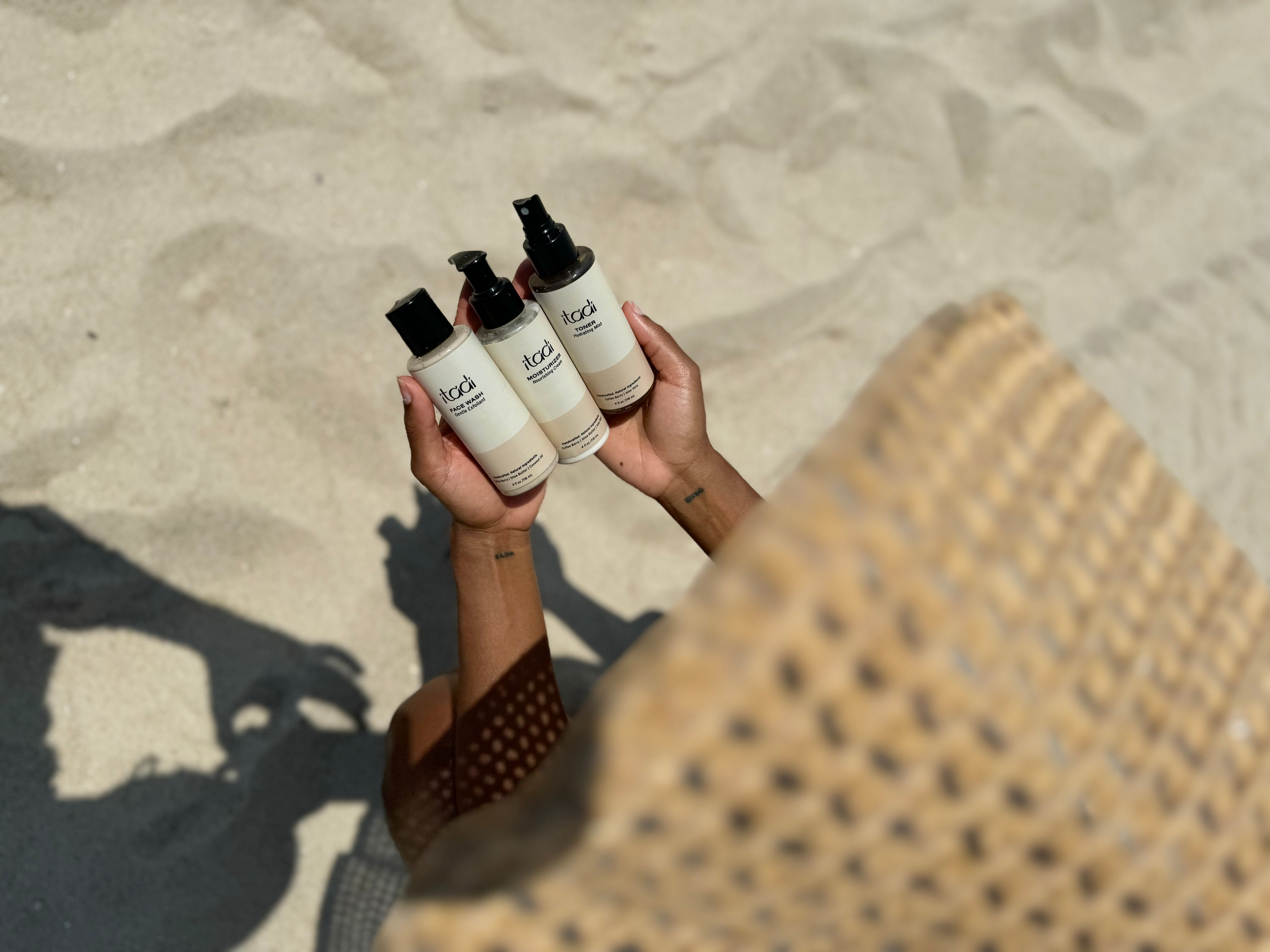Welcome to the Itadi Body blog! The world of skincare is full of advice, tips, and tricks, but it's also brimming with myths and misinformation. It can be hard to tell what's true and what's just an old wives' tale. Today, we're going to bust some common skincare myths to help you build a routine based on facts, not fiction!
Myth 1: Oily Skin Doesn't Need Moisturizer
The Myth: Many people with oily or acne-prone skin believe that moisturizing will make their skin even oilier or cause more breakouts. So, they skip this crucial step.
The Fact: This is one of the most common and damaging myths! All skin types, including oily skin, need moisture. When oily skin is stripped of moisture (often by harsh cleansers or lack of moisturizer), it can actually produce more oil to compensate, leading to a vicious cycle of oiliness and breakouts. Look for lightweight, non-comedogenic (non-pore-clogging) moisturizers, often labeled as "gel" or "lotion" [1].
Myth 2: You Only Need Sunscreen on Sunny Days or Outdoors
The Myth: Sunscreen is just for beach days or when you're spending a lot of time outside in direct sunlight.
The Fact: UV rays are present every single day, regardless of whether it's sunny, cloudy, or even if you're indoors near windows [1]. UVA rays, which contribute to aging and skin cancer, can penetrate clouds and glass. Daily, year-round sunscreen application (SPF 30 or higher) is the single most effective anti-aging and skin-protective step you can take for your skin. Make it a non-negotiable part of your morning routine.
Myth 3: Natural Ingredients Are Always Better for Your Skin
The Myth: If an ingredient is natural, it must be good and safe for your skin. Synthetic ingredients are always bad.
The Fact: While many natural ingredients offer fantastic benefits, "natural" doesn't automatically mean safe or effective. Many natural ingredients can be highly irritating or allergenic for some skin types (think essential oils, certain plant extracts). Conversely, many synthetic ingredients are incredibly safe, stable, and effective. It's about the science and formulation, not just the origin. Always patch test new products, whether natural or synthetic [1].
Myth 4: You Can "Shrink" Your Pores
The Myth: There are products or treatments that can permanently shrink the size of your pores.
The Fact: Pore size is largely determined by genetics and cannot be physically shrunk. However, you can make your pores appear smaller by keeping them clean and clear of debris (like oil and dead skin cells). Regular exfoliation (with gentle chemical exfoliants like BHAs) and using ingredients like niacinamide can help minimize their appearance by preventing them from getting clogged and stretched [1].
Myth 5: Hot Water Opens Pores and Cold Water Closes Them
The Myth: Using hot water to open your pores for cleansing and cold water to close them afterwards is beneficial.
The Fact: Pores don't have muscles to open and close. Extremely hot water can strip your skin of its natural oils, leading to dryness and irritation, while very cold water can cause vasoconstriction (tightening of blood vessels), but doesn't "close" pores. Lukewarm water is always best for cleansing your face, as it's effective without being harsh [1].
The Takeaway
Navigating skincare can be tricky, but by understanding the science behind common myths, you can make smarter choices for your skin. Focus on consistent, gentle care, and always prioritize sunscreen. When in doubt, consult with a dermatologist or trusted skincare professional!




0 comments